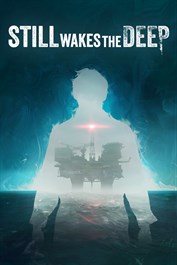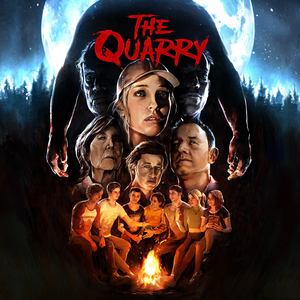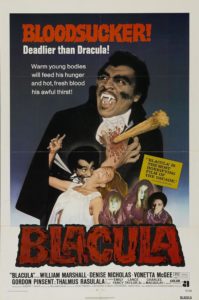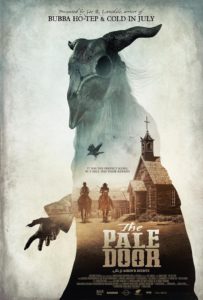 I should say first that this post contains semi-spoilers for the movie X, which I watched as the first half of a Friday night double feature last night. So if you read beyond this paragraph, I recommend you have seen that movie first.
I should say first that this post contains semi-spoilers for the movie X, which I watched as the first half of a Friday night double feature last night. So if you read beyond this paragraph, I recommend you have seen that movie first.
So in X, our first viewpoint character is the recently cocaine-addicted stripper / girlfriend of the strip club owner, named Maxine. She wanders around the farm where she is shooting her first feature porn, in short overalls and nothing else, except when she’s skinny-dipping or sleeping or on camera, if you know what I mean (and I think you do). At one point, she crosses paths with Pearl, the wife of the owner of the farm. Pearl is ancient in a way that people made up to be old look moreso than people in real life ever seem. But Pearl still has… longings. She shows to Maxine pictures on the wall of herself in the full bloom of girlhood, before her husband went off to World War I, and tells Maxine that she should appreciate it while she’s got it, because someday she will end up just like Pearl. And the image on the wall photograph is the spitting image of Maxine, in a way that I thought was clever and telling; but in reality I did not know the half of it.
For you see, Pearl and Maxine were played by the same actress, one Mia Goth. And in the wake of that stunning realization, we learned that Ti West had made a prequel named Pearl, immediately after X was finished while they were still in New Zealand. And it was also available for streaming, so we immediately watched the next entry in what appears to be a trilogy, although Maxxxine isn’t out until later this year.
I spoke at length about the visible influences on the prior movie, so I should say of this movie that it has the imprint of The Wizard of Oz all over it. The palette is just drenched in oversaturated colors, Pearl in a dress on her bicycle immediately evokes Miss Gulch[1], and there’s a scene with a scarecrow that I really should let you experience for yourself.
Anyway, as the daughter of German immigrants near the end of the Great War and the height of the Spanish Flu, Pearl is having a rough time. She’s married, but her husband is off to the war. She hates the farm, but is trapped there by circumstance and her mother’s iron will. All she really wants is to show the world her dancing talent, get into the movies, and never come back home again.
If only her father weren’t crippled. If only people weren’t so distrustful of her German mother. If only she were free to do whatever she wanted.
If only she were sane…
So, down to the nitty gritty. This movie isn’t as tightly plotted and nowhere near as unsettlingly filmed as X was. The end of this movie as it relates to the beginning of the prior movie, it just makes no sense at all. I cannot imagine how you get from here to there. And yet… Mia Goth just sold Pearl to me, in a way I’m not entirely sure I would have believed was possible. Her descent, her yearning, to be accepted, to be loved, to be free. It was what you would call, if it were the kind of movie people took seriously, a tour de force performance. I am truly impressed by this actor, is what I’m saying.
And my god, that smile. You’ll know the one I mean.
[1] Margaret Hamilton when she was in black and white in Kansas, instead of black and green in Oz
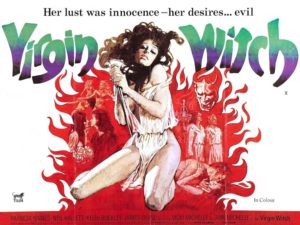 My horror movie podcasts’s next movie [that I had not already seen] was meant to be a grind house movie about a witch. My instant internal response was, does that even exist?? Turns out, there’s at least one! (And I’m betting not many more than that.)
My horror movie podcasts’s next movie [that I had not already seen] was meant to be a grind house movie about a witch. My instant internal response was, does that even exist?? Turns out, there’s at least one! (And I’m betting not many more than that.)